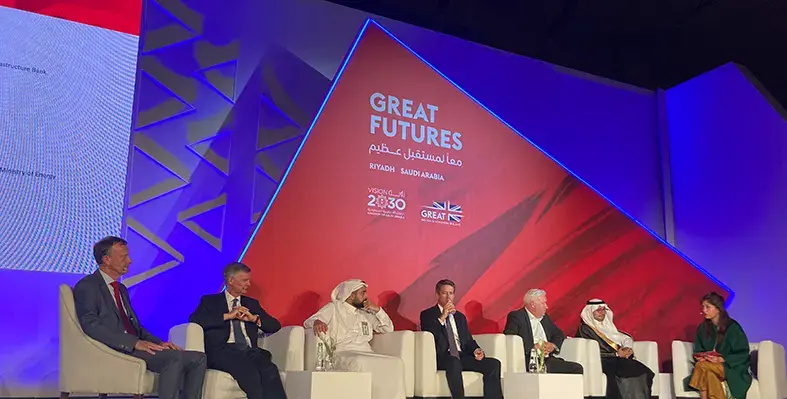Johnson Matthey (JM), a global leader in sustainable technologies, has announced the opening of its new offices in Riyadh, Kingdom of Saudi Arabia (KSA)
JM has been optimising petrochemical operations across the region for over 35 years, enhancing technology performance through catalysts and licensing innovative technologies for the efficient production of chemicals and fuels. The expansion in Saudi Arabia underscores the company’s commitment to the region and aligns with its strategic initiatives to enhance local support and collaboration.
Speaking on a panel on ‘Powering a Greener Future’ at the Great Futures Festival in Riyadh, Maurits van Tol, chief executive, Catalyst Technologies at Johnson Matthey, underlined the versatility of JM's technologies which can utilise various feedstocks to produce a broad spectrum of chemical building blocks and fuels. This feedstock-agnostic approach is pivotal for industries seeking flexible and sustainable solutions. He highlighted how JM's technologies, including its innovative Fischer-Tropsch process (FT CANS), co-developed with bp, and LCH technology for low-carbon hydrogen production, are integral to advancing sustainable aviation fuel (SAF) and other low-carbon solutions.
Van Tol stated, “JM technologies will support KSA as it seeks to diversify its energy sources and reach its sustainability goals. We can and will help it make its vision to lead the world in making a Circular Carbon Economy a reality.”
He added, “JM already has a strong commitment in supporting the KSA in reaching its decarbonisation targets through proactive collaboration on R&D projects with local partners and universities. Our new office in Riyadh shows a deepening of this commitment, and we intend to do more. By localising support and providing advanced, scalable technology, we can support the Kingdom in leading the way in tackling energy and climate challenges, meeting its Vision 2030 goals, and, ultimately, its desire to reach ‘Net Zero’ by 2060.”
Johnson Matthey opens office in Saudi Arabia

Maurita van Tol (far left) and the Great Futures Festival panel session. (Image source: Johnson Matthey)






